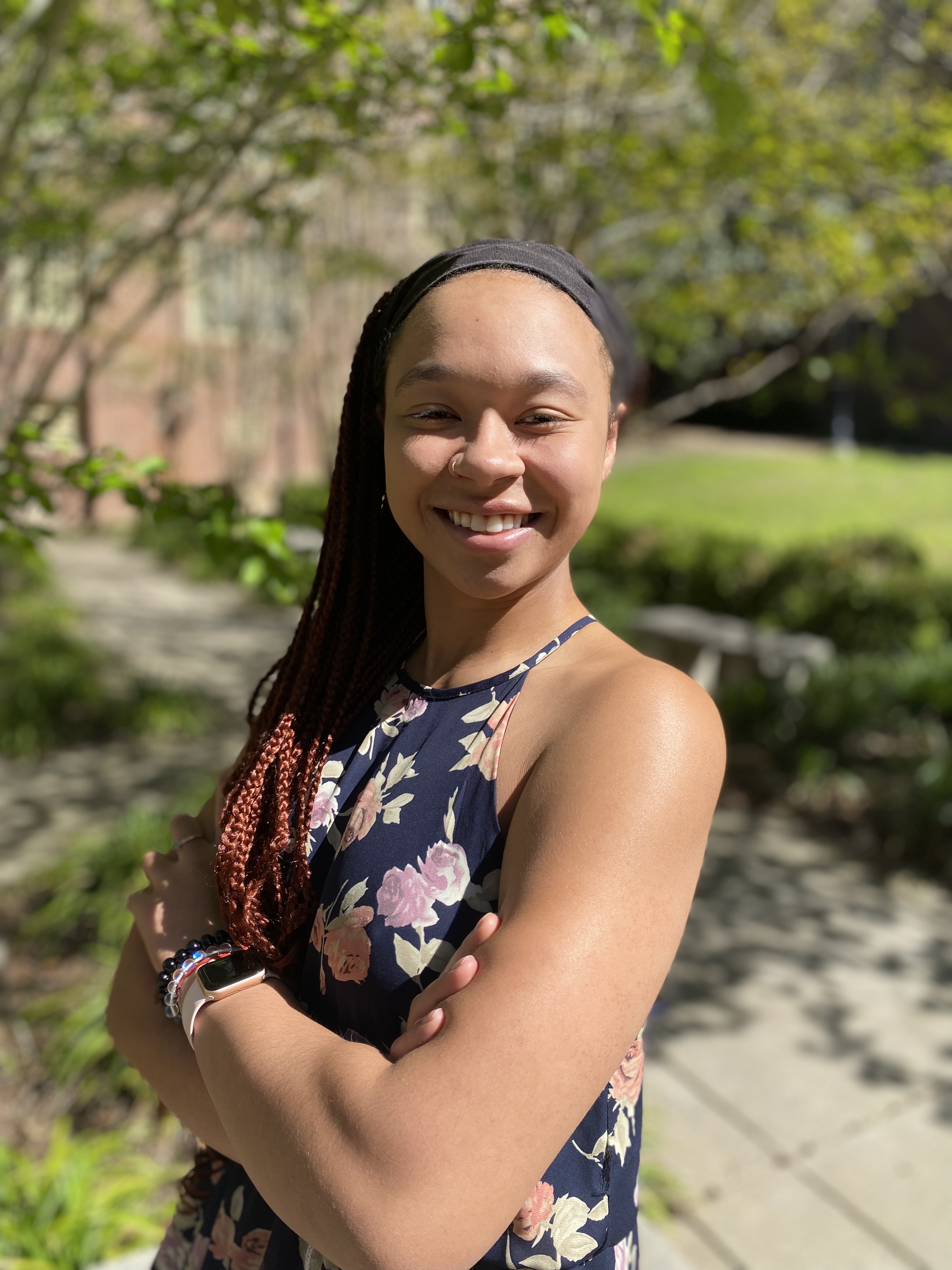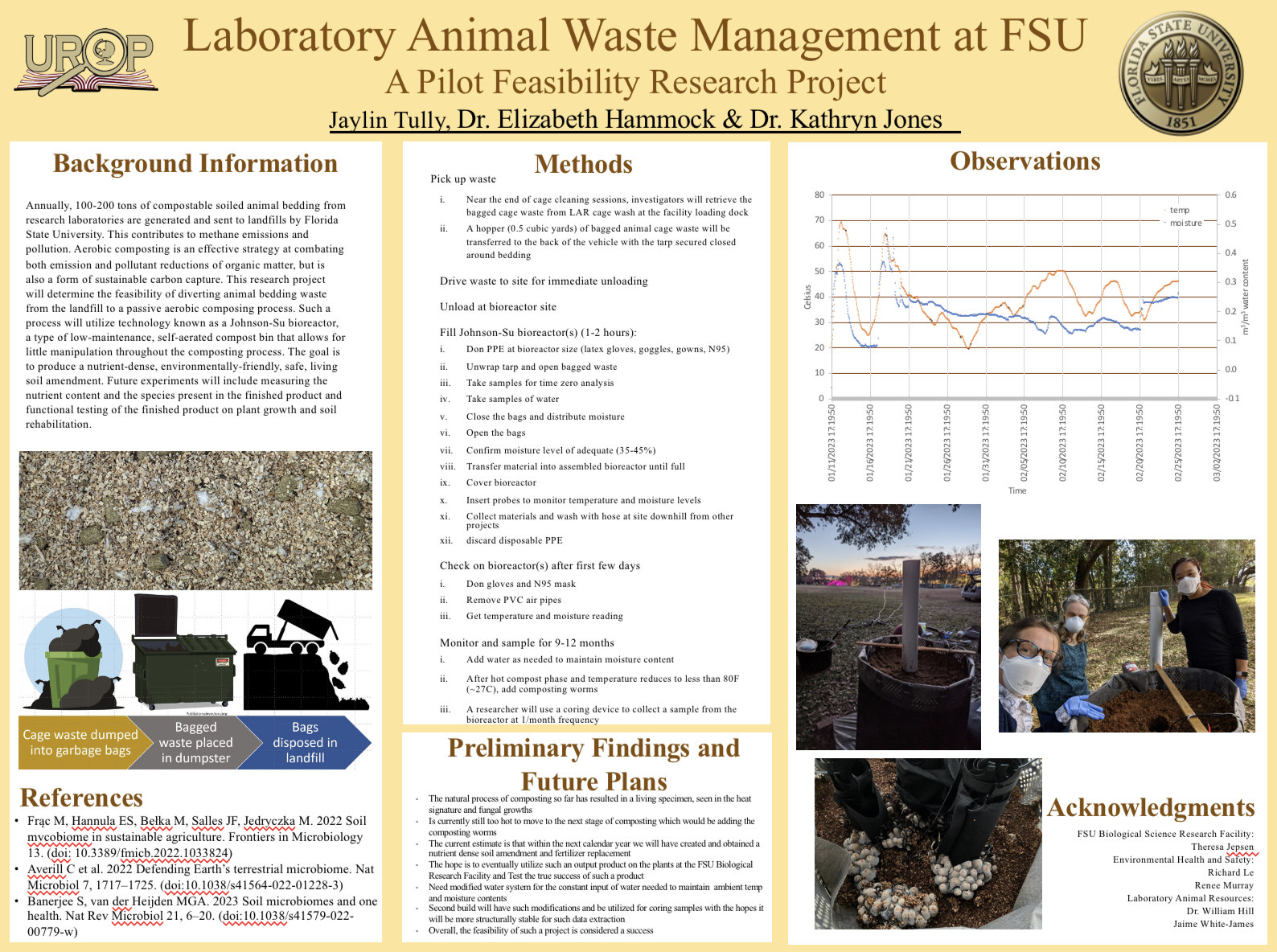Research Symposium
23rd annual Undergraduate Research Symposium, April 6, 2023
Jaylin Tully Poster Session 2: 1:30 pm - 2:30 pm/ Poster #162

BIO
Hello! My name is Jaylin Tully, and I am a 4th year transfer student majoring in Interdisciplinary Social Sciences. I moved to Tallahassee from central New Hampshire, coming from a little town called Gilmanton. My small and reserved town was what made me choose FSU, as I wanted nothing more than to experience a change of pace and a large school environment (not to mention the lack of snow was a huge plus!). My personal passions and research interests include conservation efforts, waste reduction, and sustainability, as they are some of the only hopes we have left to saving our environment. After I graduate in the fall, I plan on moving out to the west coast to law school the following year, hoping to utilize those very passions to pursue a career in environmental law.
Laboratory Animal Waste Management at FSU: A pilot feasibility research project
Authors: Jaylin Tully, Elizabeth HammockStudent Major: Interdisciplinary Social Science
Mentor: Elizabeth Hammock
Mentor's Department: Psychology Mentor's College: Arts and Sciences Co-Presenters:
Abstract
Climate change threatens ecosystems and economies around the globe. There is an urgent need for climate mitigation strategies to both reduce greenhouse gas emissions and increase carbon cycling in plants and soil. One way to reduce emissions is to reduce disposal of organic matter into landfills. A way to increase carbon capture is to facilitate soil and plant health. Aerobic composting can accomplish both emissions reductions and carbon capture. Annually, 100-200 tons of compostable soiled animal bedding from research laboratories at Florida State University are sent to area landfills, contributing to methane emissions. This project will determine the feasibility of diverting animal bedding waste from the landfill to a passive aerobic composting process.
Specifically, this project utilizes a technology known as Johnson-Su Bioreactor, a type of low-maintenance,
self-aerated compost bin that allows for little manipulation through the process of decomposition. With this plan,
the goal is to produce a nutrient-dense, environmentally-friendly, bacterially safe, living soil amendment. Thus
far, we have established feasibility of retrieving some of this material from the waste stream and established a
bioreactor that achieves hot compost temperatures without manual turning. Currently, we are implementing
process improvements to increase the likelihood that this will result in a living soil amendment that will have
higher value and take less effort than standard composting methods. Future experiments will include
measuring the nutrient content and the species present in the finished product and functional testing of the
finished product on plant growth and in soil rehabilitation.
Keywords: compost waste soil Johnson-Su recycle

